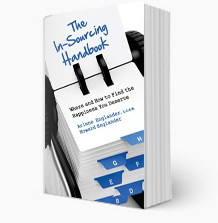All of us grow into adulthood preordained by genetics and shaped by environment. The result is unpredictable, often ill-defined and always biased by childhood conditioning – good or bad – that creates fixed ways of responding to the world of our early years.
We retain these attitudes and perspectives as the historical causes of our behavior, our “teaching story” as the American Indians might describe it. By distancing ourselves from the timeline we can look objectively at the experiences we both endured and enjoyed. The events that unfold are “our past,” and it is the viewing of this chronology of what was, that reveals the lessons to be learned.
To learn a new way, we must examine the unvarnished, unburnished old way. You can’t erase the mistakes and failures; painful hurts will leave scars. But you can create new narratives and plots and themes. I like this quote from Anne Lamott about painful experiences that you never completely get over but finally leave behind: “It’s like having a broken leg that never heals perfectly – that still hurts when the weather gets cold, but you learn to dance with the limp.”
The truth is experience often is not the best teacher. Suffice it to say, the way most of us live our lives today is vastly different than the dance our parents fashioned for themselves and for us as well. There came a point when we realized we can change the family trajectory by becoming aware of the options that adulthood offers and choosing to exercise them.
As adults we discover that we can create opportunities rather than merely reacting to circumstance. Recognizing the drawbacks attached to family style modus operandi we can decide to reprogram the default behaviors put in place during our childhoods. We give ourselves a choice: continue to rely on others to determine your self-worth or believe in yourself and your value as a human being.
We recognize that mistakes and failures are part of being human. Sometimes mastery is outside our reach but invariably there is insight and progress. We find there is more room to experience life when we give ourselves slack for lapses of the past.
Each new day offers the option: to see life as a treadmill, compliant with what was, or to see life as a forward path, actively conscious of what can be.
We can be content to accept the life script that was written for us. Or we can choose to author a new teaching story to leave behind for the generations that follow.

